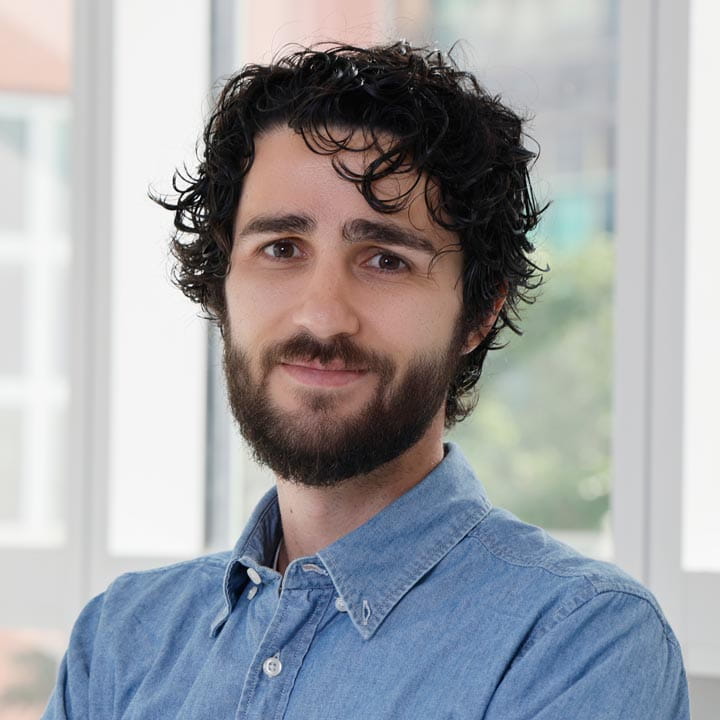
Assistant professor, Department of Neurology
Dr. Bonet-Ponce is originally from Valencia, Spain where he graduated from the Universidad the Valencia (B.Sc ’11). Dr. Bonet-Ponce obtained his Ph.D in 2015 under the supervision of Dr. Javier Romero (Universidad Catolica de Valencia) where he studied the role of oxidative stress in macroautophagy. Dr. Bonet-Ponce then moved to the United States and completed his postdoctoral studies at the National Institutes of Health (NIH), in Mark Cookson’s group. His work focuses on understanding the molecular biology underlying neurodegeneration. Specifically, by studying how lysosomal dynamics contributes to Parkinson’s disease and other neurodegenerative diseases. Outside the lab, he enjoys playing soccer and spending time with the family.
Research Interests
The lysosome, a key player in cellular homeostasis and stress response, is crucial for maintaining cell health. Dysfunctional lysosomal responses to stress can lead to cell death and organ dysfunction. Lysosomal dynamics include the dynamic processes involved in the movement, positioning, and upkeep of lysosomes within a cell. A comprehensive grasp of lysosomal dynamics is vital for understanding how cells regulate their internal milieu and adapt to diverse cellular and environmental stimuli.
In neurodegenerative diseases like Parkinson's (PD), Alzheimer's (AD), and Amyotrophic lateral sclerosis (ALS), lysosomal dysfunction is a common factor. In the Bonet-Ponce lab, we focus on deciphering lysosomal functionality, especially its response to cellular stress. Our research combines genetic insights and cell biology to explore lysosomal proteins associated with a higher risk of neurodegenerative diseases. We investigate their roles, examining the impact of pathogenic mutations on function and the broader cellular landscape.
Understanding lysosomal dynamics is not only fundamental to cell biology but also holds promise for developing therapies targeting diseases rooted in lysosomal dysfunction.
Clinical Interests
Parkinson’s disease
Education & Training
- Postdoctoral Training: National Institutes of Health, Laboratory of Neurogenetics, Bethesda, USA
- PhD: Universidad Catolica de Valencia, School of Medicine, Valencia, Spain
- MSc: Universidad de Valencia, Basic and Applied Neurosciences, Valencia, Spain
- BSc: Universidad de Valencia, Biological Sciences, Valencia, Spain
Editorial Activities
Experience as an ad-hoc reviewer in the following journals: Nature, Science, Nature Communications, Science Advances, Current Biology, Brain, Autophagy, Cell Reports, Aging Cell, Human Molecular Genetics, iScience, Journal of Neuroscience, Neurobiology of Disease, Neurobiology of Aging, Development, Frontiers in Neuroscience, Journal of Neurochemistry, Oxidative Medicine and Cellular Longevity, NPJ Parkinsonism and Synapse.
Professional Activities
2023-present Lead Curation Editor, Molecular Biology of the Cell.
2021-2023 Early-Career Editor, Molecular Biology of the Cell.
2020-2022 Chair, 3PSeminar series.
2015-present Member, American Society for Cell Biology.
2012 ISCEV 2012 meeting, Organizing committee.
Honors and Awards
- Early Career Researcher Paper of the Year Award, Molecular Biology of the Cell, 2023.
- Fellows Award for Research Excellence (FARE) competition, 2021.
- Special Interest Group (SIG) Award on Neurobiology, 2020.
- Special Interest Group (SIG) Award on Protein Trafficking and Organelle Dynamics, 2020.
- Scientific Director Award, 2018 NIA IRPS Scientific Retreat, 2018.
